Related Research Articles

Earl Marshal is a hereditary royal officeholder and chivalric title under the sovereign of the United Kingdom used in England. He is the eighth of the great officers of State in the United Kingdom, ranking beneath the Lord High Constable of England and above the Lord High Admiral. The dukes of Norfolk have held the office since 1672.

Charles Maitland, 3rd Earl of Lauderdale, was the second son of John Maitland, 1st Earl of Lauderdale.
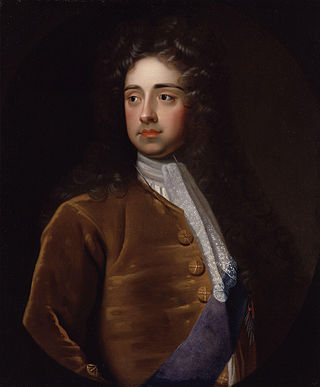
The Lord High Treasurer was an English government position and has been a British government position since the Acts of Union of 1707. A holder of the post would be the third-highest-ranked Great Officer of State in England, below the Lord High Steward and the Lord High Chancellor of Great Britain.
Margaret of Norfolk or Margaret of Brotherton, Duchess of Norfolk in her own right, was the daughter and eventual sole heir of Thomas of Brotherton, eldest son of King Edward I of England by his second marriage. In 1338, she succeeded to the earldom of Norfolk and the office of Earl Marshal. In 1397, she was created Duchess of Norfolk for life.

The House of Mowbray was an Anglo-Norman noble house, derived from Montbray in Normandy and founded by Roger de Mowbray, son of Nigel d'Aubigny.
Sir Hugh Conway, was a member of the royal household of king Henry VII who served in a number of official posts including Lord High Treasurer of Ireland and Treasurer of Calais.
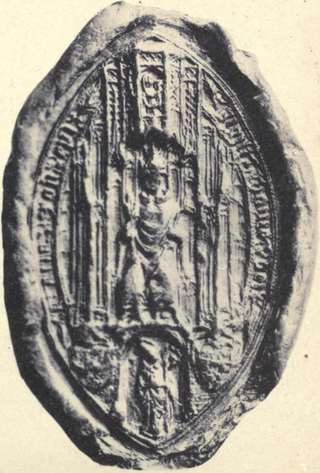
Thomas de Brantingham was an English clergyman who served as Lord Treasurer to Edward III and on two occasions to Richard II, and as bishop of Exeter from 1370 until his death. De Brantingham was a member of the Brantingham family of North East England.
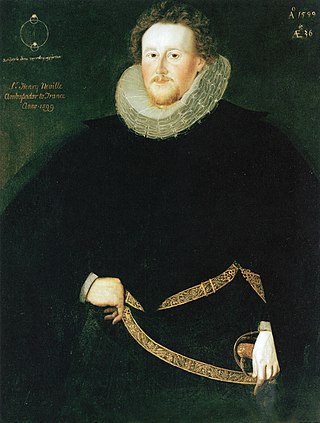
Sir Henry Neville was an English courtier, politician and diplomat, noted for his role as ambassador to France and his unsuccessful attempts to negotiate between James I of England and the Houses of Parliament. In 2005, Neville was put forward as a candidate for the authorship of Shakespeare's works.

Rowland FitzEustace, 1st Baron Portlester was an Irish peer, statesman and judge. He was one of the dominant political figures in late fifteenth-century Ireland, rivalled in influence probably only by his son-in-law Garret FitzGerald, the "Great" Earl of Kildare.
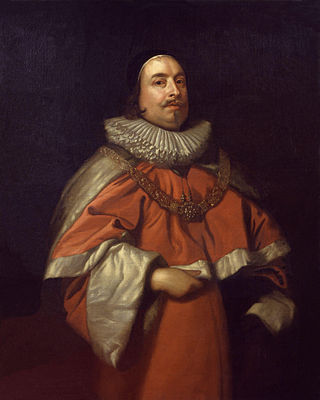
Edward Littleton, 1st Baron Lyttleton, from Munslow in Shropshire, was a Chief Justice of North Wales. He was descended from the judge and legal scholar, Thomas de Littleton. His father, also Edward, had been Chief Justice of North Wales before him.
Segrave is a surname and can refer to:

Nicholas Segrave, 1st Baron Segrave was an English baronial leader. Nicholas was grandson of Stephen de Segrave. Segrave was one of the most prominent baronial leaders during the reign of King Henry III.
John Russell was an English Bishop of Rochester and bishop of Lincoln and Lord Chancellor.
William Grey was a medieval English churchman, academic, and Lord High Treasurer. He served as Chancellor of Oxford University and as Bishop of Ely.
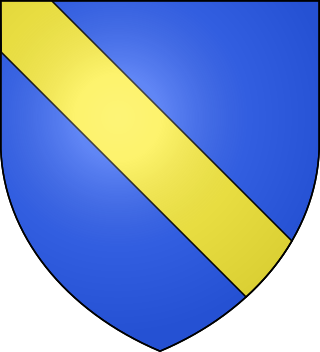
Richard le Scrope, 1st Baron Scrope of Bolton was an English soldier and courtier, serving Richard II of England. He also fought under the Black Prince at the Battle of Crecy in 1346.
Sir Thomas Blount was a supporter of Richard II of England.
Sir Richard Lane, a.k.a. Edward Lane, was an English barrister who practised mostly in the Court of Exchequer. He acted as defence counsel to the Earl of Strafford when the Earl was impeached and attainted, and also represented Archbishop Williams and eleven other bishops who were imprisoned in the Tower of London in 1642.

John Segrave, 4th Baron Segrave was an English peer and landowner in Leicestershire and Yorkshire. His family title of Baron Segrave is drawn from a village now spelled Seagrave, which uses a coat of arms imitated from that of the family.

In the United Kingdom, the Great Officers of State are traditional ministers of the Crown who either inherit their positions or are appointed to exercise certain largely ceremonial functions or to operate as members of the government. Separate Great Officers exist for England and Wales, Scotland, and formerly for Ireland, though some exist for Great Britain and the United Kingdom as a whole.
References
- Chisholm, Hugh, ed. (1911). . Encyclopædia Britannica . Vol. 24 (11th ed.). Cambridge University Press. p. 583.
- Leland, John. "Seagrave,Sir Hugh". Oxford Dictionary of National Biography (online ed.). Oxford University Press. doi:10.1093/ref:odnb/25037.(Subscription or UK public library membership required.)
